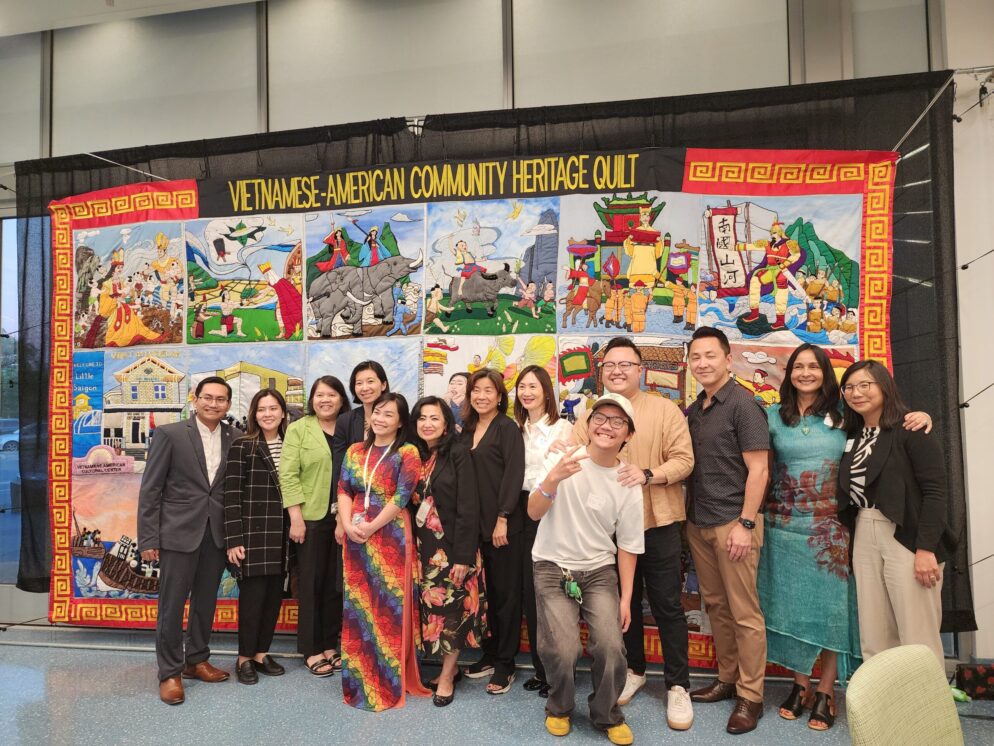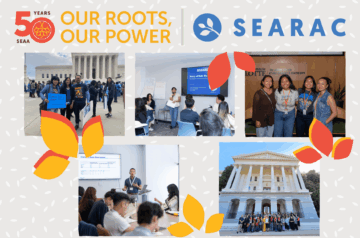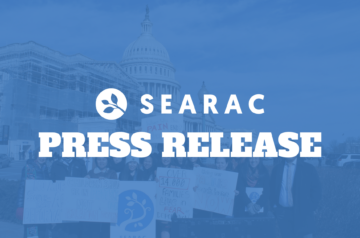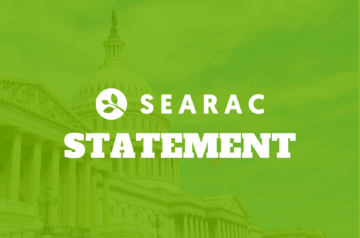Sacramento, CA – SEARAC is thrilled to announce that the website on the California Department of Education’s ethnic studies model curricula on Cambodian American Studies, Hmong History and Cultural Studies, and Vietnamese American Experiences is now live. The website provides further information about this project and features lesson plans related to the history and experiences of these Southeast Asian American (SEAA) communities. These resources are free to the public and are designed to support K–12 classrooms across California. You can access the model curricula here.
SEARAC partnered with the Orange County Department of Education to ensure the history and experiences of SEAAs were meaningfully involved. We hosted virtual engagement sessions which allowed for community members to voice feedback about education materials and content they wished to see in the curricula. Collaborators included many students, researchers, curricula writers, education experts, and community members with Vietnamese, Cambodian, and Hmong heritage.
“The launch of the ethnic studies model curriculum is a powerful and necessary step toward ensuring that young Southeast Asian American students feel truly seen and valued in their classrooms,” shared Thuy Do, SEARAC’s California Senior Program Manager. When Southeast Asian Americans students have the opportunity to learn about their own history and culture in school, it deepens their connection with family and community, strengthens their self-identity, and fosters a profound understanding of their heritage. The excitement I’ve seen from teachers, artists, and community organizations around this initiative is inspiring. Southeast Asian American voices must continue to be central to creating inclusive resources like these.”

“Learning about the struggles and resilience of Cambodian American communities fosters empathy and is a critical step in confronting the lasting impacts of US intervention in Southeast Asia, the Cambodian genocide, and the resettlement of Southeast Asians — events that continue to echo across generations,” shares Vattana Peong, Executive Director from The Cambodian Family, “We hope that the model curricula encourages students and educators to examine issues related to resettlement, identity, and cultural heritage that Southeast Asian American communities, including Cambodian Americans, experience. By launching these educational resources, we are not only recognizing the contributions of Cambodian Americans but also beginning a necessary process of healing and creating a more inclusive narrative that reflects the true diversity and depth of our nation.”

“All students benefit when we include the histories and experiences of the diverse communities that make up America. The launch of the model curricula for K-12 schools ensure that teachers and students are better equipped to understand the contributions of Southeast Asian Americans. The Hmong experience has been historically overlooked, but the model curriculum will ensure that our community receives the visibility we have been asking for,” shared Ger Thao, Program Specialist at Orange County Department of Education.

The website offers lessons that delve into the diverse experiences, histories, and cultures of Vietnamese, Cambodian, and Hmong Americans. By elevating community voices, educators and students can explore how historical events, cultural values, and educational experiences influence perspectives among SEAAs across generations.
“I am so happy that [ethnic studies] classes are an option for students to take in public high schools, and I’m so excited for more students to be exposed to it moving forward”, stated Alyssa Tran, ICAN’s Marketing and Development Coordinator. “Students these days are more open-minded and aware, and hopefully the rollout can deepen the connection amongst students to build empathy and kindness when addressing the significance of different historical events throughout K–12.”
When SEAA youth see themselves represented, they feel more empowered and connected. This website launch is a crucial step in affirming their identities and celebrating their histories. We invite you to explore and share this resource widely.
Media contact:
Elaine Sanchez Wilson, elaine@searac.org




